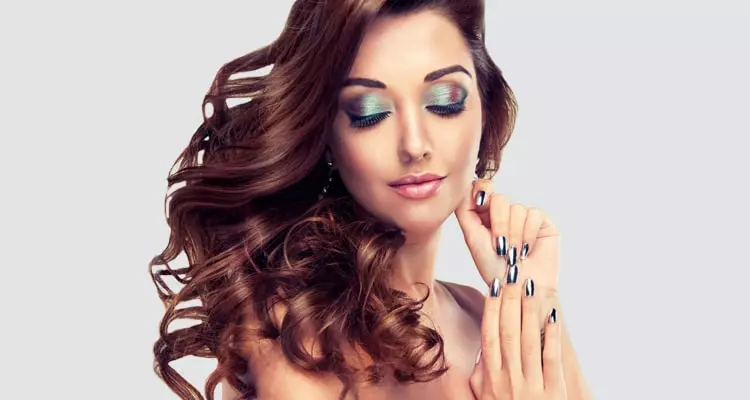How many types of makeup are there?
Makeup encompasses a wide range of products and techniques, and there are numerous types of makeup based on the areas of the face and body they are applied to, as well as the desired effect. While the list can be extensive, here’s a breakdown of some broad categories and types of makeup:
Face Makeup
Foundation
Concealer
Powder
Blush
Bronzer
Highlighter
Primer
Eye Makeup
Eyeshadow
Eyeliner
Mascara
Eyebrow Products (pencil, powder, gel)
Lip Makeup
Lipstick
Lip Gloss
Lip Liner
Skincare-Infused Makeup
Tinted Moisturizer
BB Cream (Beauty Balm)
CC Cream (Color Correcting)
Setting and Finishing Products
Setting Spray
Setting Powder
Special Effects Makeup:
Prosthetics
Latex
Face Paint
Special Effects Kits
Makeup Tools and Accessories
Makeup Brushes
Beauty Blender/Sponge
Tweezers
Eyelash Curler
Body Makeup
Body Foundation
Shimmer and Glitter Products
Temporary Tattoos
Nail Makeup
Nail Polish
Nail Art Products
Travel and Convenience Makeup
Makeup Wipes
Portable Makeup Kits
Ethnic and Cultural Makeup
Products tailored for specific ethnicities and cultural makeup practices
Men’s Makeup
Products formulated for men, such as tinted moisturizers and concealers
Seasonal and Specialty Makeup
Halloween Makeup
Holiday Makeup Collections
Professional and Theatrical Makeup
High-performance products used in the film, theater, and fashion industries
Everyday Makeup Basics
Products used for simple, everyday makeup looks
Anti-Aging Makeup:
Formulations with skincare ingredients for mature skin
Waterproof and Long-Wear Makeup
Products designed to resist water and stay in place for extended periods
Environmental and Vegan Makeup:
Products with environmentally friendly and cruelty-free formulations
This list is not exhaustive, and the Makeup artist course in Chandigarh industry continues to evolve with new formulations and trends. The types of makeup you choose depend on personal preferences, the occasion, and the desired makeup look. Whether it’s a natural everyday look or a dramatic special effects makeup, the variety of makeup types allows for creativity and self-expression.
Why is makeup hygiene important?
Makeup hygiene is crucial for several reasons, as it helps maintain the health of your skin, prevents infections, and ensures the longevity and effectiveness of your makeup products. Here are key reasons why makeup hygiene is important:
Preventing Bacterial Growth
Makeup products can harbor bacteria, fungi, and other microorganisms over time. Proper hygiene, such as cleaning brushes and tools regularly, helps prevent the growth of harmful bacteria that can lead to skin infections.
Avoiding Skin Irritations
Dirty makeup brushes and expired products can cause skin irritations and allergic reactions. Clean tools and regularly check the expiration dates of your makeup to reduce the risk of adverse skin reactions.
Preventing Acne and Breakouts
Makeup residue and bacteria on applicators can clog pores, leading to acne and breakouts. Regularly cleaning makeup tools, especially those that come in direct contact with the skin, helps maintain clear and healthy skin.
Minimizing the Spread of Germs
Sharing makeup products or tools can lead to the spread of germs and infections. Avoid sharing personal makeup items to reduce the risk of transmitting bacteria or viruses.
Preserving Product Quality
Proper hygiene helps extend the shelf life and effectiveness of makeup products. Using clean brushes and storing products correctly prevents contamination, ensuring that your makeup performs as intended.
Preventing Eye Infections
Eye makeup, such as mascara and eyeliners, can be a breeding ground for bacteria. Proper hygiene, such as regularly replacing mascara and cleaning eye brushes, helps prevent eye infections and irritation.
Maintaining Lip Health
Lip products, especially those in contact with the mouth, can carry bacteria. Regularly cleaning lip brushes and ensuring that lipstick is not shared can help maintain lip health and prevent the spread of germs.
Hygiene in Professional Settings
Makeup artists and professionals in the beauty industry must adhere to strict hygiene practices to protect clients. Clean tools, disposable applicators, and sanitization are critical in professional makeup application.
Reducing Cross-Contamination
Cross-contamination can occur when using the same makeup products on different areas of the face or on different individuals. Proper hygiene practices help reduce the risk of transferring bacteria from one area to another.
Preventing Viral Infections
Viral infections, such as cold sores, can be transmitted through lip products. Avoid sharing lip products and use disposable applicators to prevent the spread of viruses.
Complementing Skincare
Good skincare practices go hand in hand with makeup hygiene. Clean skin provides a better canvas for makeup application, and regular cleansing helps remove makeup residues.
To maintain good Makeup course in Chandigarh hygiene, regularly clean your brushes, sponges, and applicators, check product expiration dates, avoid sharing personal makeup items, and be mindful of cleanliness during application. Incorporating hygiene practices into your makeup routine is essential for both the health of your skin and the effectiveness of your makeup products.
Read more article:- Techsolutions.

